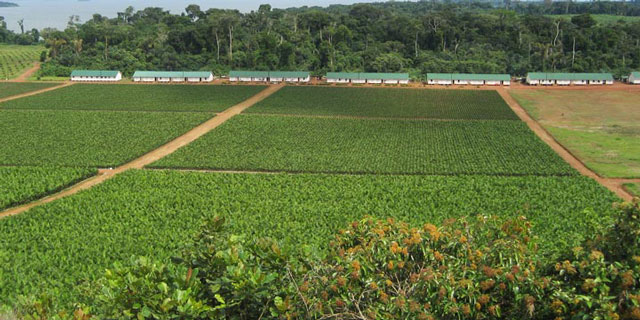
Kalangala, Uganda | THE INDEPENDENT | The acute scarcity and high cost of seedlings are frustrating the anticipated expansion of the oil palm growing project in Kalangala district.
With support from the government and International Fund for Agriculture Development-IFAD since the early 2000s, the communities in Kalangala undertook to grow palm oil growing as an alternative income-generating project, to diversify from their traditional fishing and lumbering activities.
According to figures at the Kalangala Oil Palm Growers’ Cooperative Trust-KOPGT, at least 5,300 hectares of land on the main Island of Buggala have been planted with oil palm trees, and recently, the project started expanding to other islands of Bubembe and Bunyama.
However, the project’s expansion prospects have suffered a setback due to inaccessibility and very high costs of seedlings, something that is frustrating prospective smallholder farmers.
Teopista Nakiyingi, an out-grower in Bbeta Parish, Mugoye Sub County is among the dozens of intending oil palm farmers who are currently stuck with their cleared pieces of land which they can’t plant after they failed to get seedlings.
He indicates that her application for seedlings has been pending at the Kalangala Oil Palm Growers’ Cooperative Trust-KOPGT since July last year, something that is frustrating her dreams of expanding her farm size to six from the two acres she owns apparently.
According to farmers, the price of seedlings has since risen to 27,000 Shillings each from the 12,000 Shillings, in 2019.
The farmers have since been accessing inputs that include seedlings and fertilizers from the project’s main investor; Oil Palm Uganda Limited, in the form of agriculture support loans channeled through Kalangala Oil Palm Growers’ Cooperative Trust-KOPGT.
Even with the current cost, the farmers cannot get the seedlings when they need them, which according to Nakiyingi is a serious hindrance that needs to be addressed by the government for the progress of the project which is intended to create rural transformation and increase on the country’s vegetable oil production.
Edward Ssekasambo, another smallholder farmer indicates says he has since last year failed to establish his plantation due to lack of access to the seedlings. On average, each acre of land is planted with 58 oil palm tree seedlings, which begin producing the fruit bunches after four years.
Frank Turyahikayo, a Field Officer at Kalangala Oil Palm Growers’ Cooperative Trust, confirms that the supplier had hardly satisfied the ever-growing demand for the seedlings, as more people get attracted by the high-income yielding potential of the project.
He however indicates that the cooperative has already considered the option of directly importing its own seedlings from the original producers, as they wait for the results of the ongoing studies on the process to locally germinate the seedlings a conclusive solution to high cost and chronic scarcity.
*****
URN
 The Independent Uganda: You get the Truth we Pay the Price
The Independent Uganda: You get the Truth we Pay the Price


